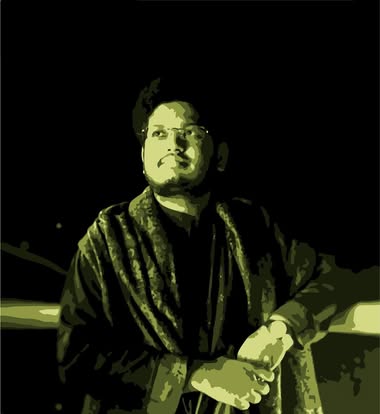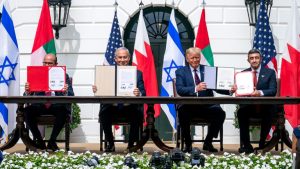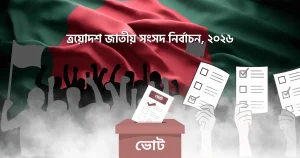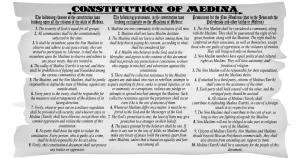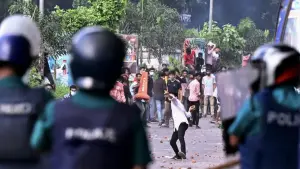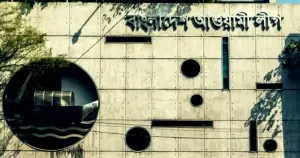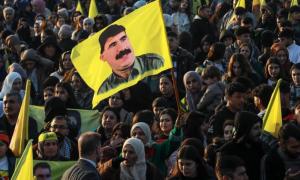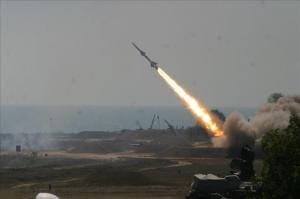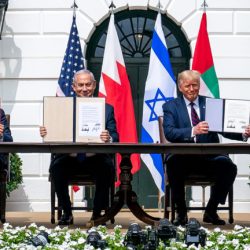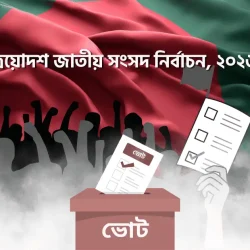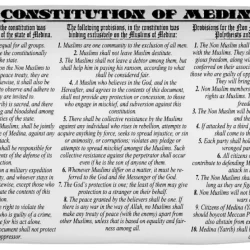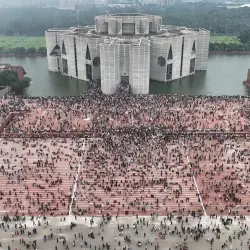A cast of characters that would be suitable for an epic political drama is involved in a political mystery that is shrouded in mystery, with allegations and denials of the accusations. The story begins in East Pakistan in the late 1960s, a politically unstable section of the country where tensions between the East and West were at an all-time high. A man by the name of Bangabandhu Sheikh Mujibur Rahman became well-known during this period as the head of the Bangladesh Awami League, a political organization that advocated for more autonomy for the East. However, as his support rose, so did the opposition to his rule, and rumors of a plot to topple him spread. What follows is a tale of intrigue and deception, with twists and turns that will leave you breathless. So, are you ready to unravel the mystery of the Agartala Conspiracy Case?
What is the Agartala Conspiracy Case?
The Agartala Conspiracy Case was a political conspiracy that took place in East Pakistan in the late 1960s. The Bangladesh Awami League leader, Bangabandhu Sheikh Mujibur Rahman, and a number of other political figures were charged with conspiring to overthrow Pakistan’s government and create an independent state in East Pakistan.
Agartala conspiracy case summary states that it was viewed as a political instrument exploited by the military establishment to silence the political opposition in East Pakistan, and it was claimed that the prosecution was founded on fraudulent accusations. Bangabandhu and other Awami League officials were found guilty in the case, which eventually resulted in the creation of an independent Bangladesh following the Bangladesh Liberation War in 1971. The Agartala Conspiracy Case is still a key development in Bangladeshi history and is still a contentious issue there.
The political situation in East Pakistan Emergence of Bangabandhu Sheikh Mujibur Rahman
East Pakistan’s political climate was tense and unstable in the late 1960s. The central authority of East Pakistan, which included modern-day Bangladesh, was economically and politically insignificant.
The Bangladesh Awami League, which pushed for greater rights and autonomy for East Pakistan, and the military establishment and political opponents in West Pakistan, who were keen to keep control of the region, were at odds, which typified the political climate in East Pakistan. The feeling of oppression and underrepresentation among the people of East Pakistan fueled growing discontent and calls for more autonomy.
The central government, which was dominated by West Pakistan, was displeased with the economic and political exclusion of the people of East Pakistan. the widening economic divide between East and West Pakistan, as the former is suffering from both economic hardship and political repression. They believed they weren’t being treated fairly and weren’t getting the political and economic advantages they merited. As a result, the people of East Pakistan began to feel increasingly frustrated and angry, which was further inflamed by political repression and false accusations.
As a result, Bangabandhu Sheikh Mujibur Rahman rose to prominence and became the helm of the Bangladesh Awami League, a political organization that fought for the expansion of the rights of the people of East Pakistan. The Bangladesh Awami League, which advocated for more rights for the people of East Pakistan, was led by Bangabandhu Sheikh Mujibur Rahman, who in this context rose to prominence as a political figure.
The ongoing Cold War, in which India and Pakistan supported opposing forces, made the political situation in East Pakistan even more difficult. East Pakistan’s political unrest finally sparked the Bangladesh Liberation War, which resulted in the creation of an independent Bangladesh, in 1971.
Bangabandhu’s increasing political influence and popularity, however, alarmed the military establishment and political competitors in West Pakistan, who reacted by persecuting and finally bringing a case against the people of East Pakistan.
Agartala Conspiracy Case
The military establishment and political rivals concocted a conspiracy against Bangabandhu and the Awami League in order to eliminate the danger. Bangabandhu and other Awami League leaders were placed on trial for treason in this conspiracy case.
Bangabandhu and other Awami League leaders were detained in 1968 by the military authorities in East Pakistan on charges of treason and conspiring to overthrow the West Pakistani government. The main conspiracy is said to have taken place in the Indian city of Agartala in the Tripura state, where Sheikh Mujib’s associates allegedly met with Indian military officials to solicit support for an independent Bangladesh. The case is officially known as State vs. Sheikh Mujibur Rahman and others but is more commonly known as Agartala Shorojontro Mamla (Agartala conspiracy case).
The Pakistani government filed civil law charges against 35 political figures, including three esteemed government officials. They were Sheikh Mujibur Rahman, Ahmed Fazlur Rahman CSP, Steward Mujibur Rahman, Commander Moazzem Hossain, former LS Sultanuddin Ahmad, LSCDI Nur Mohammad, Flight Sergeant Mahfiz Ullah, Corporal Abdus Samad, former Havildar Dalil Uddin, Ruhul Quddus CSP, Flight Sergeant Md. Fazlul Haq, Bibhuti Bhushan Chowdhury alias Manik Chowdhury, Bidhan Krishna Sen, Subedar Abdur Razzaque, former clerk Mujibur Rahman, former Flight Sergeant Md. Abdur Razzaque, Sergeant Zahurul Haq, A.B. Khurshid, Khan Mohammad Shamsur Rahman CSP, AKM Shamsul Haque, Havildar Azizul Haq, Mahfuzul Bari, Sergeant Shamsul Haq, Shamsul Alam, Captain Mohammad Abdul Muttalib, Captain Shawkat Ali, Captain Khondkar Nazmul Huda, Captain A.N.M Nuruzzaman, Sergeant Abdul Jalil, Mahbub Uddin Chowdhury, Lt. M Rahman, former Subedar Tajul Islam, Ali Reza, Captain Khurshid Uddeen Ahmed, and Lt. Abdur Rauf. The stage was set for years of political turbulence and turmoil in Bangladesh by this case, which signaled the start of a new era.
Read Dictatorship and Human Rights: The Ongoing Struggle for Freedom
Lieutenant Colonel Shamsul Alam, who oversaw the Inter-Services Intelligence’s East Pakistan Detachment, allegedly discovered the conspiracy (ISI). During this time, Rauf ur Rahman, an East Bengal Regiment officer who was working with the conspirators, attempted to kill Alam. Alam protected himself from the would-be assassins; as a result, he received the Sitara-e-Basalat, the highest honor for valor in a peacefully conducted military operation.
In total, 1,500 Bengalis were detained in 1967 in relation to the scheme. The Pakistani Home Department announced in January 1968 that 8 persons had been detained after discovering a plot to destabilize Pakistan and dismantle the Eastern wing through an armed uprising. Later, on January 18, the Department also accused Sheikh Mujib. He and other others were detained on May 9, 1968, freed, and then detained again.
The Trial
Since many of the accused were military personnel, Pakistan opted to hold a court-martial trial. However, this was reversed in favor of a civil trial in order to hold the politicians accountable before the 1970 elections and to ensure trial transparency. So, just 35 people were ultimately charged. The accused were then transferred from Dhaka Central Jail to the Dhaka Cantonment’s guarded perimeter.
The penal codes were changed to the prosecution’s advantage, and on June 19, 1968, the trial under a special tribunal got underway. The proceedings were held in a private room inside the Dhaka Cantonment. Mujib used the hearing as a platform to make the Awami League’s demands known. With 227 witnesses and 7 approvers, the panel heard the 100-paragraph charge sheet.
The tribunal was presided over by three judges, two of whom were Bengalis: MR Khan and Maksum-ul-Hakim. The chair, Justice SA Rahman, was not a Bengali. Attorney General TH Khan and former Foreign Minister Manzur Quader spoke on behalf of the government. Thomas Williams, a British attorney, and local lawyers filed a petition in support of Sheikh Mujib to contest the tribunal’s establishment. The approvers said in the witness box that the State had forced them to produce false evidence.
Since the government was eager to show that Sheikh Mujib was an Indian agent and a separatist, the public saw the case as a plot by the Pakistani government against the East Pakistan political autonomy movement. Bangabandhu was found guilty and given an imprisonment sentence in the Agartala Conspiracy Case despite the lack of evidence and the politically motivated nature of the prosecution. People in East Pakistan were deeply outraged by this, which drove their desire for independence from West Pakistan even more.
They organized a large-scale protest and requested the immediate dismissal of the case and the release of every prisoner. The government’s ruling states that the case’s conclusion occurred on February 6, 1969. The administration was forced to postpone the date due to the widespread uprising of 1969, nonetheless.
On the morning of February 15, 1969, a Pakistani havildar brutally murdered Sergeant Zahurul Haq at the entrance to his cell. The State Guest House, where the government’s top attorney and the chair of the tribunal lived, as well as other government facilities were set on fire by an enraged mob once word of the murder spread. They left incognito. As a result of the arson, some of the case files and evidence were destroyed.

On February 22, 1969, the government dropped the Agartala Conspiracy Case in response to a large-scale protest. The convicted were freed the following day, and Sheikh Mujib bestowed the illustrious title Bangabandhu at a lavish welcome ceremony at Race Course Maidan.
Aftermath
The Agartala Conspiracy Case was fiercely opposed and resisted by Sheikh Mujibur Rahman, the Bangladesh Awami League, and East Bangladesh’s residents. They deemed the accusations against him to be untrue and politically motivated, and they demanded a fair trial.
The Awami League maintained in pushing for East Pakistan’s independence and residents’ rights while being led by Bangabandhu. The party organized sizable protests and rallies and pushed for a free and fair municipal election. Despite the political undertones of the trial, the Awami League and Bangabandhu remained committed to the cause of independence and continued to struggle for the rights of the people of East Pakistan.
Human rights groups and political figures roundly condemned the trial, which they viewed as a political ploy by the military establishment and its rivals in West Pakistan to silence the opposition in East Pakistan. The Bangladesh independence movement was significantly impacted by the Agartala Conspiracy Case and the treason trial of Bangabandhu Sheikh Mujibur Rahman and other Bangladesh Awami League leaders. The conviction and imprisonment of Bangabandhu served to strengthen the regional independence movement and establish the groundwork for Bangladesh’s independence.
Bangabandhu was freed from jail following Bangladesh’s independence in 1971, and he was appointed as the nation’s first prime minister. He carried on as president with the intention of creating a democratic, secular, and socialist republic.
Bangabandhu’s tenure as prime minister, however, was brief. He and his family were murdered in a military takeover in 1975, putting an end to his political career and ushering in a new era in Bangladesh. But this incident is the subject of a different article.
Was it a conspiracy at all?
India was a key player in both the Bangladesh independence struggle and the Agartala Conspiracy Case. The Indian government supported and helped Bangabandhu Sheikh Mujibur Rahman and the Bangladesh Awami League in their fight for independence, and it still plays a big part in the development and progress of Bangladesh.
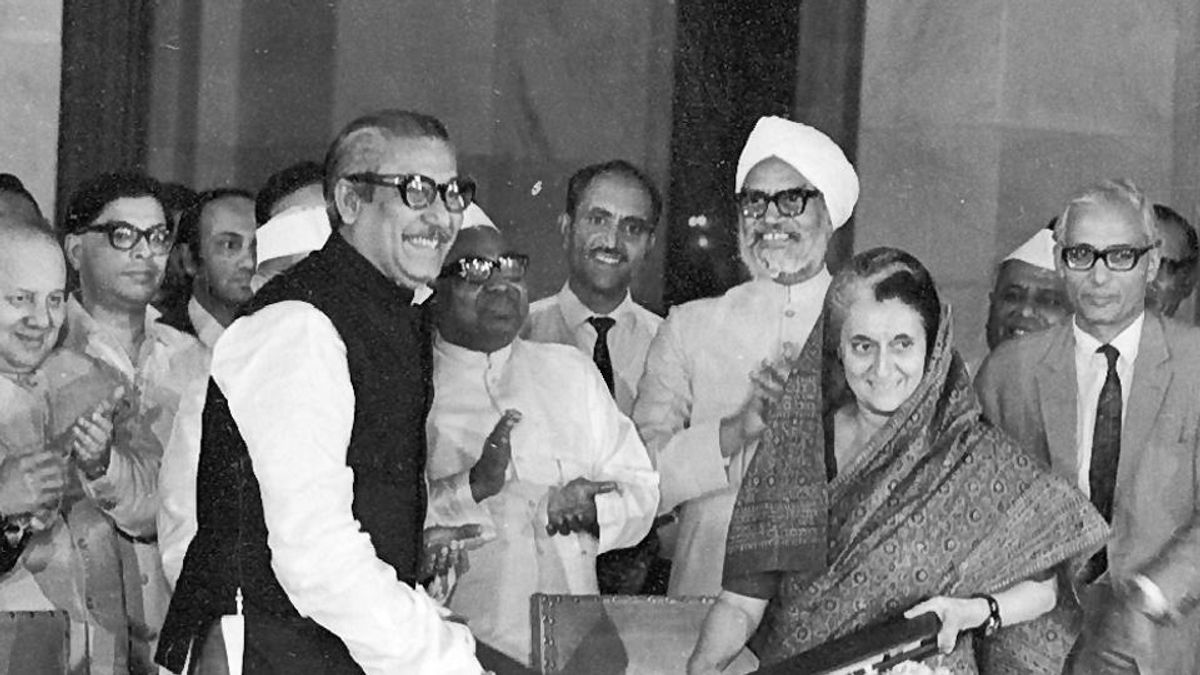
India was one of the few nations that acknowledged the political and economic problems of the people of East Pakistan in the late 1960s. The Awami League and Bangabandhu had the support of the Indian government, which helped the group and its leaders in their fight for independence.
Although the conspiracy was part of a larger effort to suppress East Pakistan’s growing demands for more rights and autonomy and to uphold West Pakistan’s dominance over the area, it ultimately helped Bangladesh become more powerful against West Pakistan in 1971. Deputy Speaker Shawkat Ali, one of the defendants in the Agartala Case, verified this account on February 22, 2011. “The charges against us read out on the first day of hearing in the case were absolutely right,” he told the parliament. He claimed, “We formed a Sangram Parishad led by Bangabandhu to free East Pakistan through armed protest.”
Shawkat added: “….as a matter of fact, several military officers and civil servants were involved in the case as we wanted to liberate the country from Pakistan through an armed revolution under the leadership of Bangabandhu Sheikh Mujibur Rahman“. He also confirmed that Navy Steward -Mujibur Rahman and the Educationist Mohammad Ali Reza had indeed gone to Agartala, India to seek Indian support for Bangladesh’s independence. He said that the country would not be independent if the case was not filed. “It was not a fake case.” In a discussion organized at Dhaka University marking the Agartala Case Withdrawal Day, Tofail said the accused in the Agartala case had actually laid the foundation of the country’s independence.
It was asserted that the conspiracy was founded on untrue claims that Bangabandhu was involved in a scheme to topple the government in East Pakistan. Additionally, it was asserted that the accusations served as the foundation for the Agartala Conspiracy Case and were supported by a number of falsified papers and testimonies.
Thousands of Bengali refugees who had fled the nation were given asylum by the Indian government in the wake of the treason trial and the political unrest in East Pakistan. India additionally supported the Bangladesh Liberation War in 1971, which resulted in Bangladesh’s independence.
Significance of the Agartala Conspiracy Case
A significant occasion in the histories of Bangladesh and Bangabandhu was the Agartala Conspiracy Case. It was a landmark case since it was the first time India had been charged with aiding a separatist movement in a neighboring nation.
The Agartala Conspiracy Case contributed to igniting the Bangladeshi independence movement and signaled the start of the resolution of the East Pakistan conflict. The case is regarded as a turning point in the history of the nation since it contributed to the abolition of the Bengali people’s political and social subjugation. The political divide in Bangladesh has been exacerbated in part by this case. Deep rifts between the country’s many political groupings and ethnic groups have been caused by the case’s events and the ensuing political turmoil.
For a number of reasons, this Case is seen as a significant development in Bangladeshi history. In the first place, the case signaled the start of Bangabandhu Sheikh Mujibur Rahman’s political downfall and the erosion of the Awami League’s power in East Pakistan. The prosecution was perceived as a politically motivated attempt by the military elite to crush the opposition and bolster their position of authority in the area.
Second, the Bangladesh Liberation War was significantly sparked by the Agartala Conspiracy Case. Bangabandhu and other Awami League leaders’ convictions were viewed as a violation of their political rights, which fueled East Pakistan’s quest for independence. With India joining the Bangladesh Liberation War to back the independence struggle, the case also strained ties between India and Pakistan.
Third, the Agartala Conspiracy Case left a long-lasting mark on Bangladesh’s political climate. The circumstances surrounding the case have influenced the nation’s political and cultural identities and continue to be a topic of contention in politics. The case continues to be a topic of historical fascination for Bangladeshis and those who are interested in South Asian history since it is considered a symbol of the battle for political freedom and independence.
The Agartala Conspiracy Case is still a contentious and divisive issue in Bangladeshi history. Despite the controversy surrounding the case, its influence on Bangladesh’s political environment and its importance to the history of the nation cannot be downplayed. The Agartala Conspiracy Case serves as a timely warning of the perils of political espionage and the value of defending democratic institutions and the rule of law. It still stands as a tribute to the bravery, tenacity, and resolve of the Bangladeshi people to stand up for their liberties and rights.
